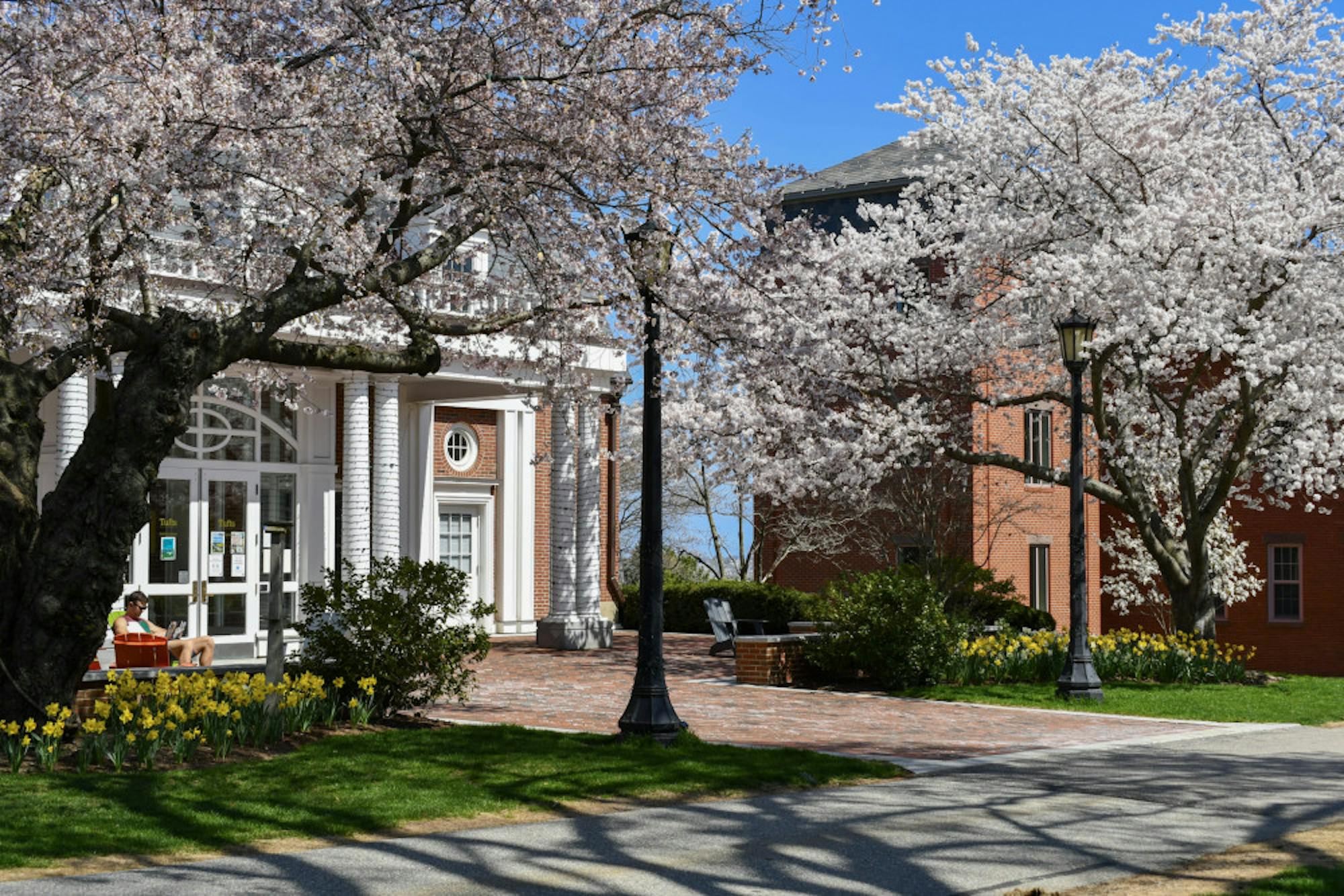The Tufts Community Union Senatepassed a resolution on April 19, advancing the bid to establish an on-campus wellness center and putting pressure on the Tufts administration to heighten its support for student mental health initiatives. Matthew Alswanger and student wellness organizations led the efforts.
The resolution was submitted by Alswanger, along with seniors Kirsten Grazewski and Dani Coates and juniors Ananda Kao, Sarah Beatty and Uzochi Oparaji.
The proposed wellness center would provide a dedicated space for mindfulness and offer wellness programming, mental health resources and stress-reduction activities, according to Alswanger, who graduated in February. The proposal also suggests offering scheduled times during which the center would only be open to students of color, emphasizing accessibility in its programming.
The center would offer wellness-focused student groups, including Active Minds and Morgan’s Message, a relaxing space on campus to host club activities.
“When you look at where the programming takes place, it's usually in classrooms or in small spaces that aren't aesthetically pleasing for wellness,” Alswanger said. “They’re all on board to basically have this space as a dedicated space for their events for their meetings.”
The resolution cites several studies and a student petition in support of an on-campus wellness center.
“A student circulated petition for the creation of a wellness center on campus garnered support from over 30 clubs and signatures of over 600 students in 6 days,” the resolution says.
The resolution concludes by calling on Michelle Bowdler, executive director of health and wellness services, to respond in writing to the resolution within two weeks, addressing how the university will pursue the initiative.
The Senate meeting at which the resolution was proposed and voted on was attended by Bowdler and Ian Wong, director of the Department of Health Promotion and Prevention, who both offered support for student efforts to promote wellness on campus.
Bowdler and Wong nevertheless noted significant concerns with implementing the proposal.
“My biggest red flag was the timing of it and the staffing,” Bowdler said in the meeting. “Ultimately, we don't have an available space, and we don't have the funding to make this happen. But do I think it's a good idea to pursue and think about further? Sure.”
Patrick Collins, executive director of media relations at Tufts, indicated the university’s support for the motivations behind the center.
“We agree that a dedicated space concept is worth further study and exploration of how it might support student mental health and wellness,” Collins wrote in an email to the Daily.
Collins added that the Mental Health Task Force appointed by University President Anthony Monaco, whichdelivered its report in 2019, recommended that the university consider establishing an Integrated Wellness Outreach Center, similar to the center proposed by Alswanger.
Collins, however, echoed Bowdler’s concerns surrounding the resources needed to realize the center, and emphasized that the COVID-19 pandemic is Tufts’ priority at this time.
“Currently there is not the funding, space, or staff to launch a wellness center next year, and the staff of Health & Wellness will continue to face significant demands managing the university’s response to the pandemic and its impact,” Collins said.
Collins did not specify whether Bowdler would respond within the requested two-week timeline, but noted that both Bowdler and Wong plan to meet with a Senate committee next year to discuss the wellness center in more depth.
Alswanger said he first proposed the idea last year at office hours hosted by Monaco. Although dialogue with the administration had slowed due to the pandemic, he collaborated with members of the Tufts Entrepreneurship Center to develop abusiness plan, after which discussion began with the TCU Treasury.
“The goal was to try and get a capital expenditure funding request through the Senate at the last meeting in order to seed fund this," Alswanger said. "That was contingent on the university providing a space."
According to Alswanger, the university did not provide the space. Alswanger expressed his frustration.
“We were basically handing them on a silver platter money and an idea, and they basically said ‘No, thank you,’” Alswanger said. “So instead of getting the money we decided we need to at least get something out of this — let's pass a resolution, so that going into next semester we can reapproach this.”
Another option is to have a student-run wellness center, similar to theMindfulness Room at Carnegie Mellon University, according to Alswanger. He noted that having a student-run center would potentially ease the university’s concerns about a lack of time to implement the proposal.
Regardless, Alswanger stressed the importance of receiving a formal response from the university as a signal that the university is committed to supporting students’ mental health.
“We all would like a formal statement from the university, from [Bowdler], basically saying this is a priority based on the students’ overwhelming support, given the petition we've done, given the resolution, and this is something that we're going to allow our time to work on with you and not just push this away,” Alswanger said. “What we're looking for is really just a response that indicates the university recognizes that students overwhelmingly want this ... that they're willing to actually invest the proper time and resources and to make this happen going forward.”






